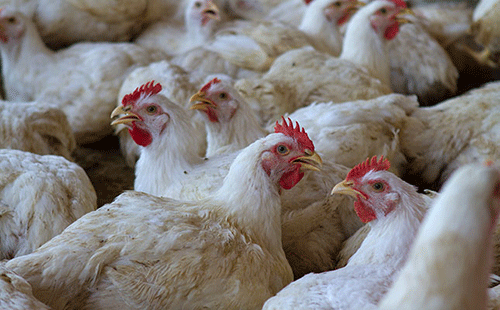Hanks Saisai
The rearing of poultry – be it chickens, quails, ducks, geese or turkeys – can be an exciting endeavour. However, due to diseases and other health-related risks that affect most poultry, it can turn out to be an endeavour riddled with many difficulties.
Therefore, it is of great importance that farmers who are rearing poultry understand how to use and handle different health remedies that are essential to keeping most birds healthy.
First on the list of poultry health remedies are the vaccines. Usually, a vaccine is a biological preparation that provides active acquired immunity to a particular infectious disease.
Vaccination is an effective means to prevent or reduce the adverse effects of specific diseases that can cause problems in a poultry flock.
Common vaccines that are usually used in poultry operations to prevent some of the most prevalent diseases are Nobilis IB Ma5, which is an effective preventative measure for Infectious Bronchitis disease, Nobilis Gumboro D78, which prevents Infectious Bursal Disease (better known as Gumboro disease), Nobilis ND Clone 30, which prevents Newcastle Disease and Nobilis Coryza to prevent Infectious Coryza. A very crucial point for poultry farmers to always keep in mind is that these vaccines are to be used on healthy birds only and for vaccines to be effective, careful mixing with water as per the direction of use on the label must be followed. Additionally, it is important for poultry farmers to always store the vaccines as per the recommended storage temperatures, which are usually 2°C to 8°C. In a case in which a poultry flock is infested, a farmer needs to act swiftly.
Firstly, all the chickens that exhibit signs of an illness must be isolated from the flock, whereas the rest of the flock is to be immediately vaccinated with the recommended vaccines.
The sick chickens will require treatment using antibiotics.
Swa-Doxy-Mycin is one of the antimicrobial antibiotics that are used to treat various ailments in poultry. Other antibiotic remedies that are used to treat sick poultry are Doxycip 50% and DoxyMax 50%.
They are usually water-soluble antimicrobial antibiotics that treat a lot of ailments in poultry.
Doxycip 50% has been found clinically effective in the treatment of a variety of infections, caused by susceptible strains of Gram-positive and Gram-negative bacteria and certain other micro-organisms. Doxymax 50% is a water-soluble powder for the treatment of bacterial respiratory disease and bacterial gastrointestinal infections in poultry. It is of great importance to always follow the instructions of use and store the remedies in the recommended storage temperature ranges.
Supplements are usually used to ensure that poultry has access to the right amount of trace elements in their diets.
Carmino+ and Stress Pac are some examples of supplements that are water soluble and can be used to increase the level of trace elements needed in the poultry’s bodies.
Additionally, farmers need to note that poultry (chickens, quails, turkeys, geese, etc.) may ingest internal parasites, such as worms and flukes – and it is necessary to control them by making use of deworming remedies.
One such remedy that can be used to deworm poultry is Piperazine, which has to be mixed in water and given to the poultry for them to ingest to eradicate any internal parasite issues.
Careful consideration is needed when mixing the dosage for chickens and other poultry birds.
In conclusion, for one to effectively farm with poultry, it is essential to ensure that one understands the different poultry health remedies and how to use them correctly.
Always remember the health status of your poultry depends on your management, and that disease control is a major component of a poultry farmer’s management plan.
* Hanks Saisai is AgriBank Technical Advisor: Crops & Poultry



